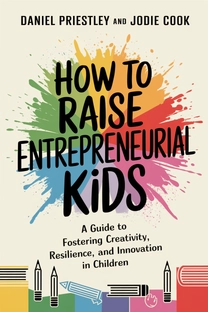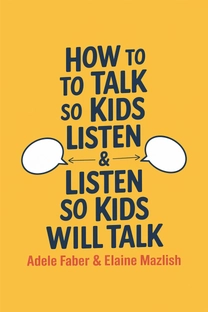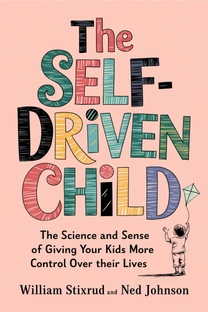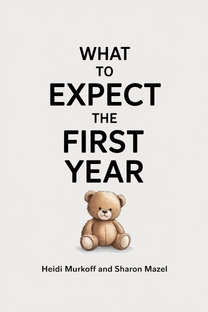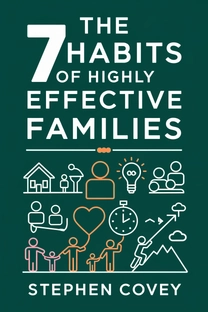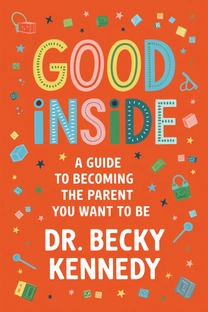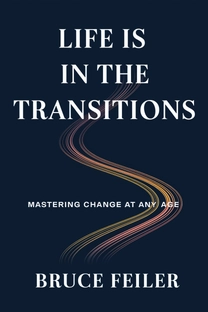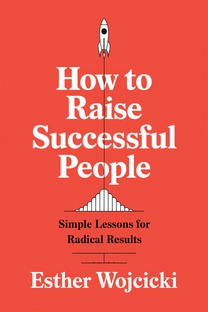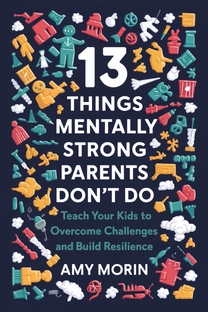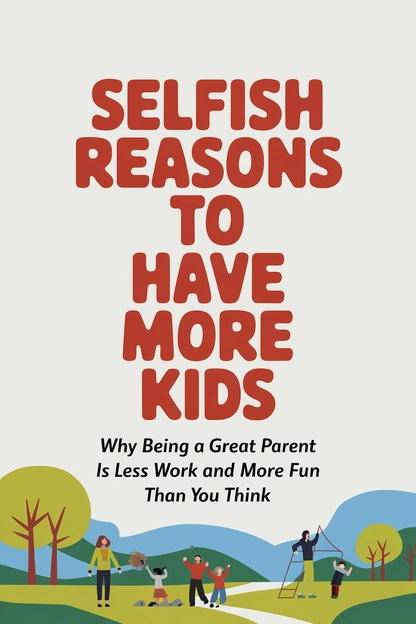
Selfish Reasons to Have More Kids
Why Being a Great Parent Is Less Work and More Fun Than You Think
by Bryan Caplan
Brief overview
This book invites readers to rethink the challenges and joys of parenting by questioning how much control parents truly have over their children’s upbringing. Expect concise lessons on why children turn out fine with less parental micromanagement, how small shifts also make parents happier, and why having more kids can be a wise long-term choice.
Introduction
Many people imagine parenthood as an all-consuming sacrifice, yet plenty of evidence suggests it doesn’t have to be that way. This approach to parenting focuses on enjoying your kids in the present, while recognizing that their long-term success depends more on who they are, rather than endless parental interventions.
By challenging common assumptions, this summary shows how to simplify parenting and remove unnecessary guilt. The author explores the impact of genetics and proposes that relaxing a bit can help parents be kinder, more cheerful, and less overworked—ultimately benefiting both child and parent alike.
Consider this a guide to questioning the extra burdens modern parents often feel pressured to take on. Whether you are already raising kids or debating starting a family, these pages aim to inspire a balanced outlook toward child-rearing.
In short, this overview encourages you to approach parenthood with optimism, rational thinking, and a willingness to let go of the high-pressure methods that often create more stress than success.
Why Parenting Feels Overwhelming
Over the last few decades, societal expectations around child-rearing have intensified. Many parents feel they must provide constant stimulation, ensure the perfect environment, and juggle innumerable activities, often at the cost of their own well-being.
Interestingly, studies confirm that time spent on child care has gone up, despite households having fewer children. Dads are spending more time with kids than in previous generations, and moms continue to log significant hours too.
On the surface, this might sound virtuous. Yet all these responsibilities can take a toll—parents can become exhausted, short-tempered, or even resentful. Children also sense this stress, noticing when parents are frazzled or on edge.
Crucially, the book urges parents to consider whether all these sacrifices truly change children’s long-term outcomes. Reflecting on which chores and commitments actually matter can help parents regain control, find relief, and reclaim enjoyment.
What is Selfish Reasons to Have More Kids about?
"Selfish Reasons to Have More Kids: Why Being a Great Parent Is Less Work and More Fun Than You Think" by Bryan Caplan encourages parents to reconsider the complexities of modern parenting. Through a data-driven lens, Caplan argues that children thrive despite a reduction in parental micromanagement, emphasizing how small changes can lead to greater parental happiness. The book underscores the long-term wisdom behind having more children, posing that parenthood, with balance, isn't as daunting as widely presumed.
By delving into the misaligned expectations of parenting, Caplan reveals why nature, rather than nurtured interventions, plays a decisive role in a child's development. The narrative unpacks methods to reduce stress without compromising children's well-being, making parenthood less about sacrifice and more about joy. Caplan's work is groundbreaking in advocating for a familial dynamic that enhances long-term joy and societal benefit through larger families.
This book resonates with parents by challenging conventional wisdom on parenting effort and satisfaction. It offers practical insights on effective parenting strategies, framing larger families as a source of happiness and societal contribution. The work is a vital read for anyone seeking to find joy in parenting and to understand its consequential societal impacts.
Review of Selfish Reasons to Have More Kids
"Selfish Reasons to Have More Kids" is a thought-provoking read that effectively combines robust research with perceptive insights into modern parenting. Bryan Caplan masterfully challenges the high-pressure standards that define contemporary parenting, revealing them as both unnecessary and, at times, counterproductive. The book shines in its ability to deconstruct myths surrounding parental influence on a child's future. Caplan provides compelling evidence that less intensive parenting doesn't hinder, but may even enhance, a child's development.
The author's exploration of practical parenting tips offers real-world applications that empower parents to balance their lives without compromising the emotional and developmental needs of their children. His narrative is conversational and approachable, effortlessly breaking down complex psychological and genetic studies for a broad readership. Caplan's writing reveals warmth and empathy, making his arguments not just convincing but inspiringly humane.
The work primarily targets parents constrained by guilt and societal expectations, as well as those contemplating larger families. By focusing on the science behind children's predisposition to thrive, Caplan offers reassurance that parents can be more relaxed without negative repercussions. For parents stressed by modern parenting's demands, this book is a liberating read that argues convincingly for simpler and more satisfying parenting practices. Strongly recommended for both new parents and those looking to expand their families, Caplan's work suggests a promising reevaluation of the joys of parenthood.
Who should read Selfish Reasons to Have More Kids?
- **New Parents:** Those navigating the early challenges of parenthood can benefit from understanding the balance between nurturing and personal well-being.
- **Parents of Multiple Children:** Ideal for parents managing the demands of a larger family, offering strategies for simplifying routines.
- **Prospective Parents:** Individuals contemplating starting or expanding their family will find value in the book's advice on reducing parenting anxiety.
- **Sociology or Psychology Students:** The book critically examines parental influence vs. genetic inheritance, making it helpful for scholarly studies.
- **Childcare Professionals:** Teachers, caregivers, and child psychologists can gain insights into familial dynamics and child development from Caplan's analysis.
About the author
Book summaries like Selfish Reasons to Have More Kids
Why readers love Mindleap
10-Minute Book Insights
Get the core ideas from the world's best books in just 10 minutes of reading or listening.
Curated For You
Discover your next favorite book with personalized recommendations based on your interests.
AI Book ExpertNew
Chat with our AI to help find the best book for you and your goals.
Reviews of MindLeap
Love how I can get the key ideas from books in just 15 minutes! Perfect for my busy schedule and helps me decide which books to read in full.
Alex R.
The summaries are incredibly well-written and the audio feature is perfect for my commute. Such a time-saver!
Jessica M.
Great app for personal growth. The insights are clear and actionable, and I love how they capture the essence of each book.
Chris P.
The app is beautifully designed and the summaries are top-notch. Definitely worth every penny!
Sarah K.


